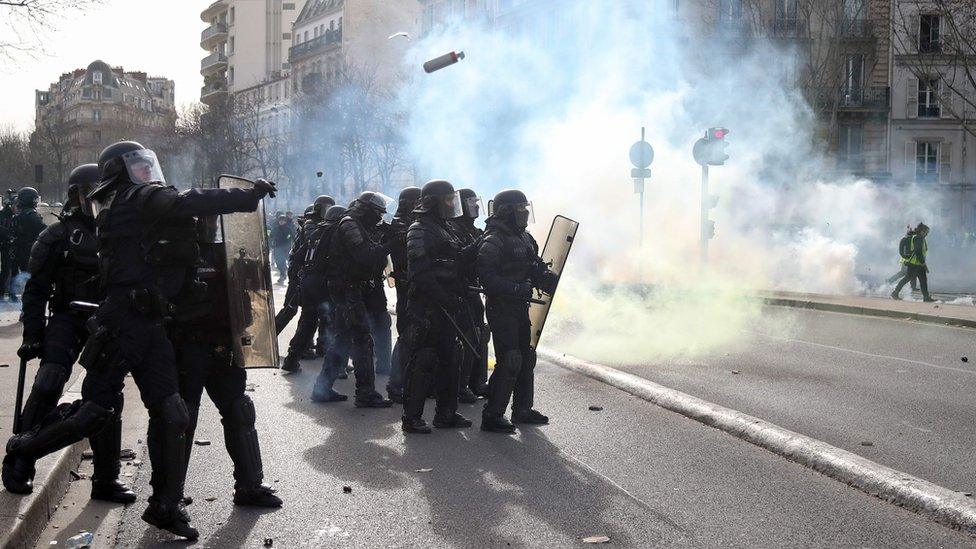Yellow-vest protests: Macron condemns anti-Semitic abuse
- Published
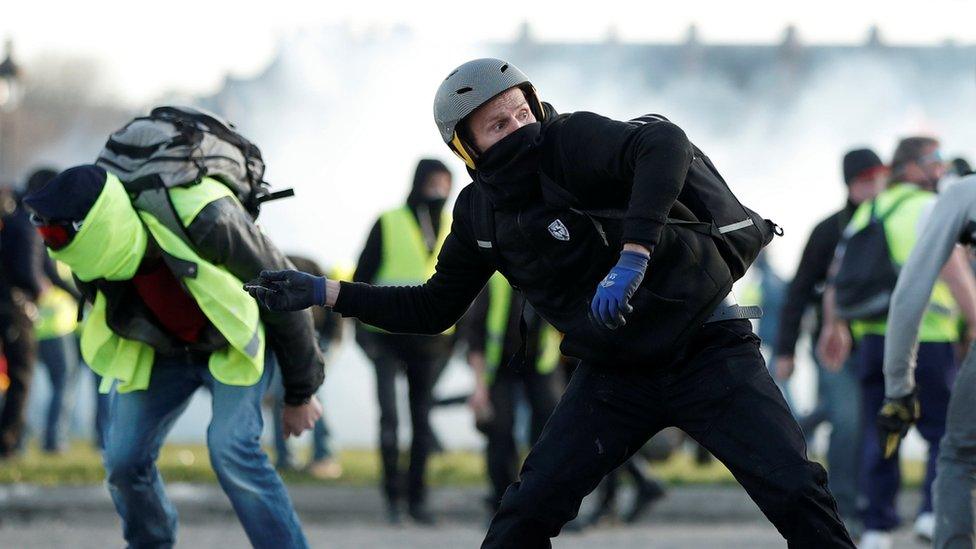
Tens of thousands took part in anti-government protests on Saturday
French President Emmanuel Macron has condemned anti-Semitic abuse directed at a prominent intellectual by a group of "yellow vest" protesters in Paris.
Police stepped in to protect the philosopher Alain Finkielkraut after he was bombarded with insults and anti-Jewish taunts in the French capital.
President Macron said it was an "absolute negation" of what made France great and would not be tolerated.
Tens of thousands took part in anti-government protests on Saturday.
Prosecutors have now opened an investigation into the incident, and France's interior minister said on Sunday that a suspect alleged to be the "main perpetrator" had been identified by the authorities.
Police used tear gas to control crowds as the so-called "yellow vest" (gilets jaunes) demonstrators took to the streets for the 14th consecutive weekend across the country. About 5,000 turned out in Paris, officials said.
What happened on Saturday?
Officers in Paris intervened to form a barrier after a group of individuals involved in the march confronted Mr Finkielkraut and started verbally insulting him.
The 69-year-old Jewish academic told Le Parisien newspaper that he heard people shouting "dirty Zionist" and "throw yourself in the canal"., external
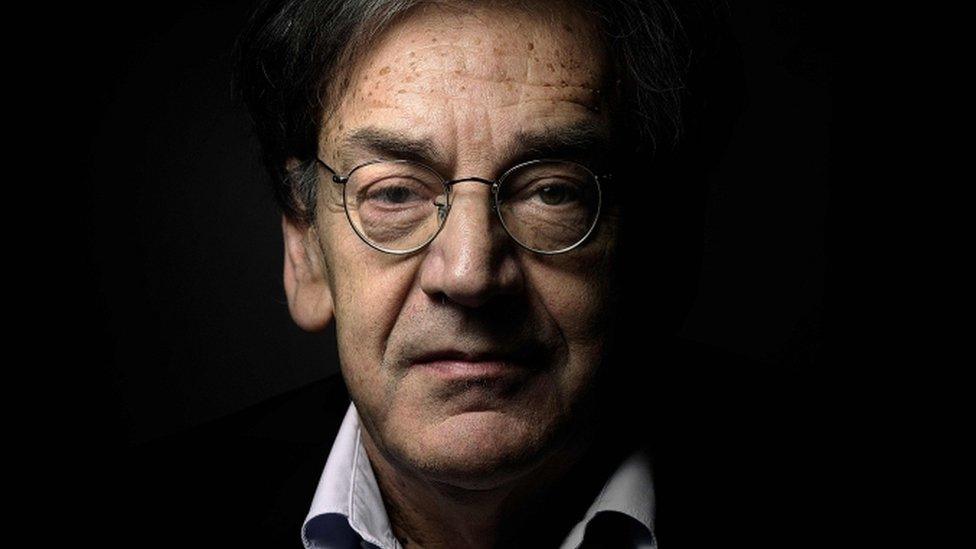
Alain Finkielkraut said he was relieved when the police intervened
He told newspaper Journal du Dimanche he felt an "absolute hate", external directed at him, and would have been afraid for his safety if the police were not there, although he stressed that not all of the protesters were aggressive.
Mr Finkielkraut, the son of Polish immigrants, has previously expressed sympathy for the protesters, but also voiced criticism of the movement.
He said that President Macron had spoken with him by telephone on Saturday to offer his support.
Allow X content?
This article contains content provided by X. We ask for your permission before anything is loaded, as they may be using cookies and other technologies. You may want to read X’s cookie policy, external and privacy policy, external before accepting. To view this content choose ‘accept and continue’.

The incident comes after Interior Minister Christophe Castaner warned that anti-Semitism was "spreading like poison" in the country, with a series of anti-Jewish incidents reported in central Paris last weekend.
These included post boxes featuring a holocaust survivor's portrait being vandalised with swastikas.
Jewish groups have also been warning of a rise in the far-right promoting anti-Semitism and hatred of other minorities across Europe.
Crime data from Germany released last week revealed that anti-Semitic offences had increased by 10% over the last year - including a 60% rise in physical attacks.
Who are the "yellow vest" protesters?
The protests began in mid-November over fuel taxes.
They have since broadened into a revolt against President Macron, and a political class seen as out of touch with common people.
France fuel protests: Who are the people in the yellow vests?
The protests have often turned violent, causing damage - including to some of Paris' most famous monuments.
Critics have also accused the police of using disproportionate force.
The number of protesters taking to French streets has been gradually falling - but tens of thousands are still turning out weekly to demonstrate across France.
France's interior ministry said a total of 41,500 people took part in protests across the country on Saturday, including some 5,000 people in Paris, although the organisers of the march said many more attended.
"We are 15,000 [in Paris], that means the movement is increasing," demonstrator Jerome Rodrigues told AFP news agency.
- Published1 December 2018
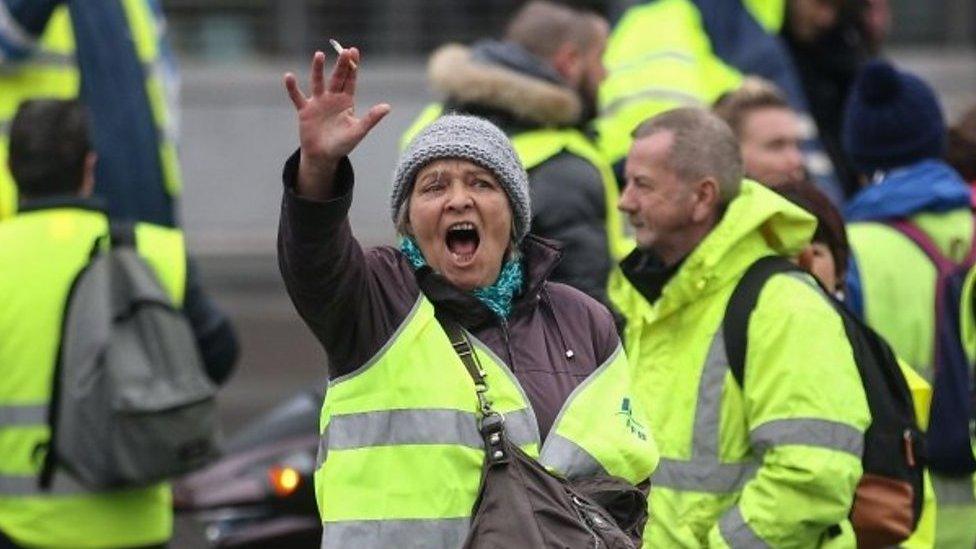
- Published13 February 2019
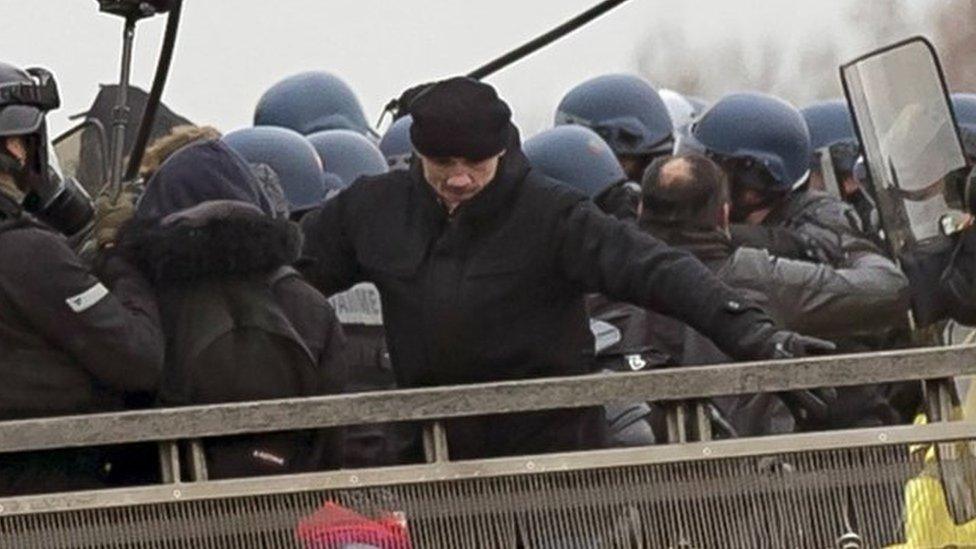
- Published9 February 2019
